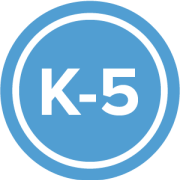
Citizenship & Participation
Students will learn what it means to be a U.S. citizen and how citizenship is obtained. They will compare and contrast personal and political rights with social responsibilities and personal duties. Students will explore global citizenship, and the rights and responsibilities of citizens in other countries. They will also learn about community engagement by selecting a problem of their own and creating a plan to solve it.
Topics at a Glance: citizenship | civil liberties | civil rights | immigration | naturalization | citizen participation | civic engagement | global citizenship | duties of a U.S. citizen | rights and responsibilities of citizens | involuntary and voluntary participation in civic life | U.S. census | D.C. voting rights
Choose Grade Level:
-
Game
Sortify: U.S. Citizenship
-
Lesson Plan
Neighborhood Good Extension Pack
-
DBQuest
Kids Making a Difference - Garden Edition
-
DBQuest
Women in Service
-
DBQuest
DC Voting Rights
-
Lesson Plan
Plug Into Power with the U.S. Census (Infographic)
-
Lesson Plan
Get Counted! (The U.S. Census)
-
Lesson Plan
Immigration Nation Extension Pack
-
Lesson Plan
This Land is Your Land
-
WebQuest
Civic Heroism!













